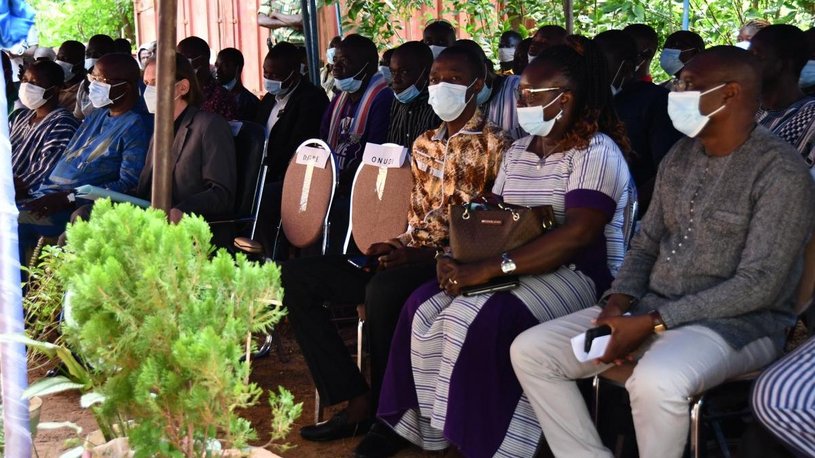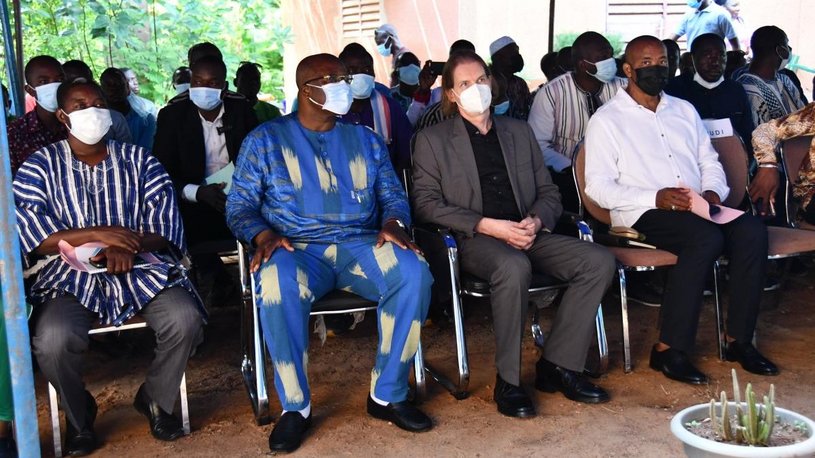ROCA aims to foster ozone and climate-friendly cooling in West and Central Africa
In Burkina Faso, World Ozone Day was celebrated with good news: The GIZ project "Refroidissement respectueux de l'Ozone et du Climat en Afrique de l'Ouest et du Centre (ROCA)" (corresponding English title: Ozone and Climate Friendly Cooling in West and Central Africa) was launched in Ouagadougou. Many relevant stakeholders from the Burkinabe government, NGOs, associations and technical partners participated. Several Burkinabe newspapers and TV stations covered the event.
ROCA’s objective is to reduce the negative climate impact of the refrigeration and air conditioning sector in four partner countries, among them Burkina Faso. The project is funded by the EU and the German Federal Ministry for Economic Cooperation and Development (BMZ) and is implemented by GIZ in cooperation with Burkina Faso’s National Ozone Unit.
"It should lead our country towards sustainable cooling, with a gain in energy efficiency, and using natural refrigerants", said Siméon Sawadogo, Minister of the Environment, Green Economy and Climate Change, who chaired the celebration.

Mr. Ronald Redeker, interim to the Resident Director, assisted by Mrs. Pauline Yameogo, technical advisor of the project, presented ROCA on behalf of GIZ in Burkina Faso. During his discourse, Mr. Redeker reminded everybody about the urgency of climate action:
"The International Day for the Protection of the Ozone Layer, celebrated on 16 September every year, demonstrates that collective decisions and actions, guided by science, are the only way to resolve major global crises. Indeed, this year's topic challenges us all on the need to adopt responsible behaviours and sustainable consumption patterns, whether it is in air conditioning, refrigeration for the preservation of our food and vaccines, or energy-efficient consumption. We must therefore apply the Montreal Protocol through contextualised regulatory measures and raise public awareness about the need to protect the ozone layer for current and future generations."

